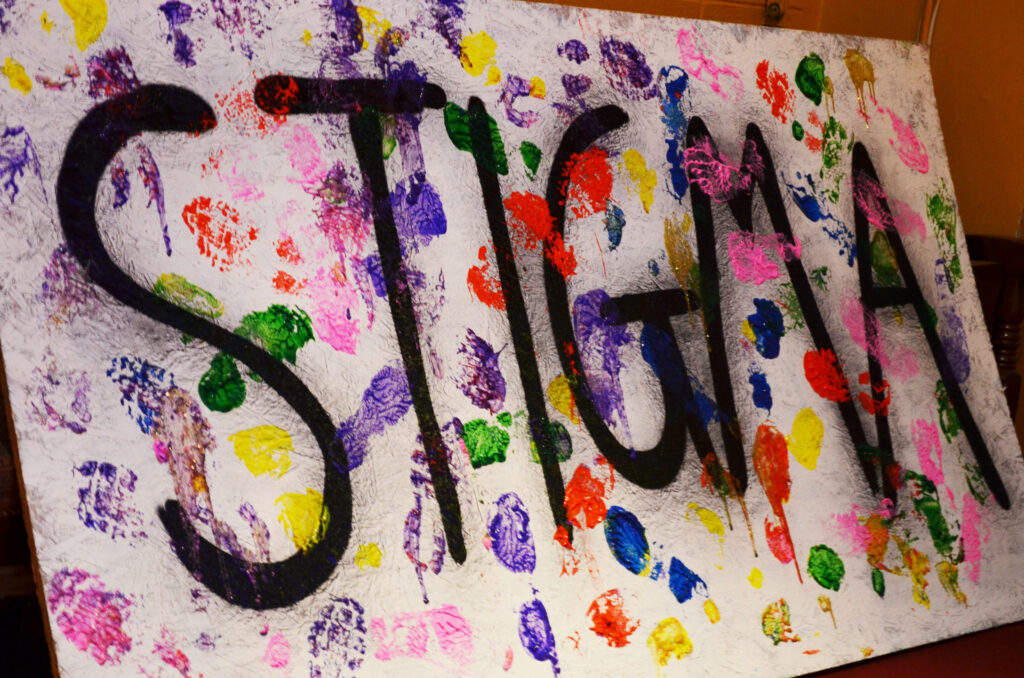A new review, published in the International Journal of Social Psychiatry, explores the impact of stigma on individuals who hear voices. The existing literature suggests that stigma around voice hearing, perpetuated by negative portrayals in the media, may negatively affect individuals who hear voices. Internalized stigma may simultaneously create barriers to accessing services while increasing distress and, in turn, need for care.
“Stigma has the potential to affect voice hearers even before a diagnosis is assigned or warranted, by virtue of implicit misunderstandings about voice hearing that permeate society and that are perpetuated by the media,” writes the author, Ruvanee Vilhauer, a professor in the Department of Psychology at New York University. Vilhauer first became involved in this line of research after reading a New York Times article on the Hearing Voices Movement several years ago.

The experience of voice hearing is more common than many would expect with reported prevalence ranging from 0.6% to 84%. Studies estimate that most people who hear voices would not meet the criteria for a psychiatric disorder. However, in the media voice hearing continues to be portrayed primarily as a symptom of a mental illness, usually of schizophrenia. “Public perceptions of voice hearing as being indicative of mental illness can lead voice hearers to believe, or fear, that they are mentally ill,” writes Vilhauer.
In a narrative review of relevant published since 2005, Vilhauer “explores whether, and how, public perception of an exaggerated association between voice hearing and mental illness might influence the transition to pathology.”
Vilhauer organizes the findings of the narrative review into six themes. The first finding is that stigma and negative stereotypes about voice hearing can be internalized by individuals who hear voices. Vilhauer also finds that individuals who hear voices may keep the voices secret due to stigma, which can lead to isolation and increased distress. She explains, “Secrecy about voice hearing experiences could potentially have a snowballing effect, as reluctance to seek help if distress ensues could prevent early intervention.”
The review also suggests that individuals with internalized stigma may perceive voices as more powerful and controlling. She cites one study that found “voice hearers’ relationships with voices mirror their relationships with others in their social world. Voice hearers who experience themselves as less powerful in relation to other people experience their voices as more powerful and are more distressed.” Lastly, the findings suggest that stigma can influence both the frequency and content of voices. According to the literature, people are more likely to try to avoid stigmatized experiences, rather than accept them, and this avoidance can lead to an increase in the experience frequency and intensity. Also, “voice hearers often report that voices magnify their perceived weaknesses” and therefore, internalized stigma may influence voice content.
In email correspondence with MIA, Vilhauer explained the importance of this research:
“Early intervention programs for psychosis are increasing. There is evidence that intervening early when people experience difficult symptoms can be helpful, so this is a good thing. However, when such programs are being designed, it’s important to recognize that early intervention can be a double-edged sword. This is particularly true in the case of intervention at the prodromal stage, before people have experienced a psychotic episode. The research I reviewed in this article suggests that assuming that unusual experiences like hearing voices are a sign of mental illness could potentially increase the need for clinical intervention. While some people who have experiences like this do have difficulty and may need professional help, others seem to manage these experiences without clinical intervention. When people are initially experiencing voices, it might be good for them to have the opportunity to be in non-clinical contexts where they have access to peer support, and can discuss what these experiences might mean.”
Vilhauer notes that the majority of the research involves correlational studies and therefore it cannot be determined whether stigma causes more distress, although researchers suggest a bidirectional relationship. Vilhauer suggests more research be conducted, writing, “We still know relatively little about the experiences of voice hearers in the non-clinical population.” She also highlights the need for more peer support, citing the Hearing Voices Movement as an important resource. She told MIA:
“Peer support networks like the ones offered through the Hearing Voices Movement can allow people to disclose voice hearing experiences without feeling stigmatized, while at the same time giving them the opportunity to access treatment if it’s needed.”
Ultimately, Vilhauer calls for a more inclusive and accurate representation of voice hearing in the media, explaining, “If, as this review suggests, stigma could influence voice hearing experiences, promoting more accurate media representations of voice hearing may be helpful to voice hearers.”
****
Vilhauer, R. P. (2016). Stigma and need for care in individuals who hear voices. International Journal of Social Psychiatry. Advance online publication. doi: 10.1177/0020764016675888 (Abstract)















Everyone hears voices but they lie about it. People have heard voices since the beginning of time.
The first one being the temptation to eat the fruit of the tree of knowledge in the Garden of Eden.
The choice to perform Evil or Good deeds
https://en.wikipedia.org/wiki/Shoulder_angel
If you can lie and say you do not hear voices that means you are sane.
“If we are all insane, then all insanity becomes a matter of degree. If your insanity leads you to carve up women like Jack the Ripper or the Cleveland Torso Murderer, we clap you away in the funny farm ; if, on the other hand, your insanity leads you only to talk to yourself when you’re under stress or to pick your nose on your morning bus, then you are left alone to go about your business…although it’s doubtful that you will ever be invited to the best parties.”
Stephen King, in Danse Macabre (1981).
Report comment